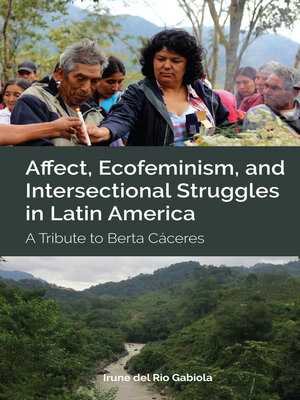Affect, Ecofeminism, and Intersectional Struggles in Latin America
ebook ∣ A Tribute to Berta Cáceres
By Irune Gabiola

Sign up to save your library
With an OverDrive account, you can save your favorite libraries for at-a-glance information about availability. Find out more about OverDrive accounts.
Find this title in Libby, the library reading app by OverDrive.



Search for a digital library with this title
Title found at these libraries:
| Library Name | Distance |
|---|---|
| Loading... |
Affect, Ecofeminism, and Intersectional Struggles in Latin America: A Tribute to Berta Cáceres examines the power of affect in structuring decolonizing modes of resistance performed by social movements such as COPINH (Civic Council of Popular and Indigenous Organizations of Honduras). Despite a harsh legacy of colonialism, indigenous communities continue suffering from territorial displacements, dispossession, and human rights abuses due to extractivist projects that are violently destroying their land and, therefore, the environment. In particular, the Lenca communities in Honduras have been negatively affected by Western ideas of "progress" and "development" that have historically eliminated ancestral knowledges and indigenous ecological cosmologies while reinforcing Eurocentrism. Nevertheless, by reflecting on and articulating strategies for resisting neoliberalism, COPINH and its cofounder Berta Cáceres' commitment to environmental activism, ecofeminism, and intersectional struggles has contributed affectively and effectively to the production of democratic encounters in pursuit of social justice. In homage to Berta, who was brutally assassinated for her activism in 2016, this book takes the reader on an affective journey departing from the violent affects experienced by the Lencas due to colonial disruption, contemporary industrialization, and criminalization, towards COPINH's political and social intervention fueled by outrage, resistance, transnational solidarity, care, mourning, and hope. In this way, subaltern actors nurture the power to—in line with Brian Massumi's interpretation of affect—transform necropolitics into natality with the aim of creating a fairer and better world.
The volume is an ideal contribution to environmental studies, cultural studies, and Latin American studies courses focused on social movements, activism, ecofeminism, and postcolonialism.







